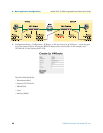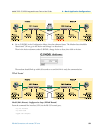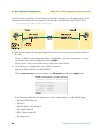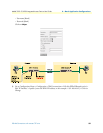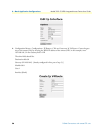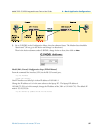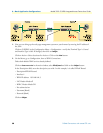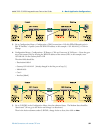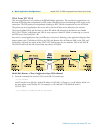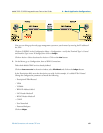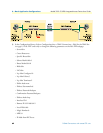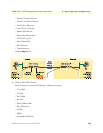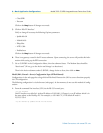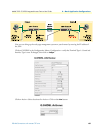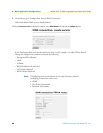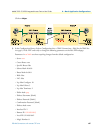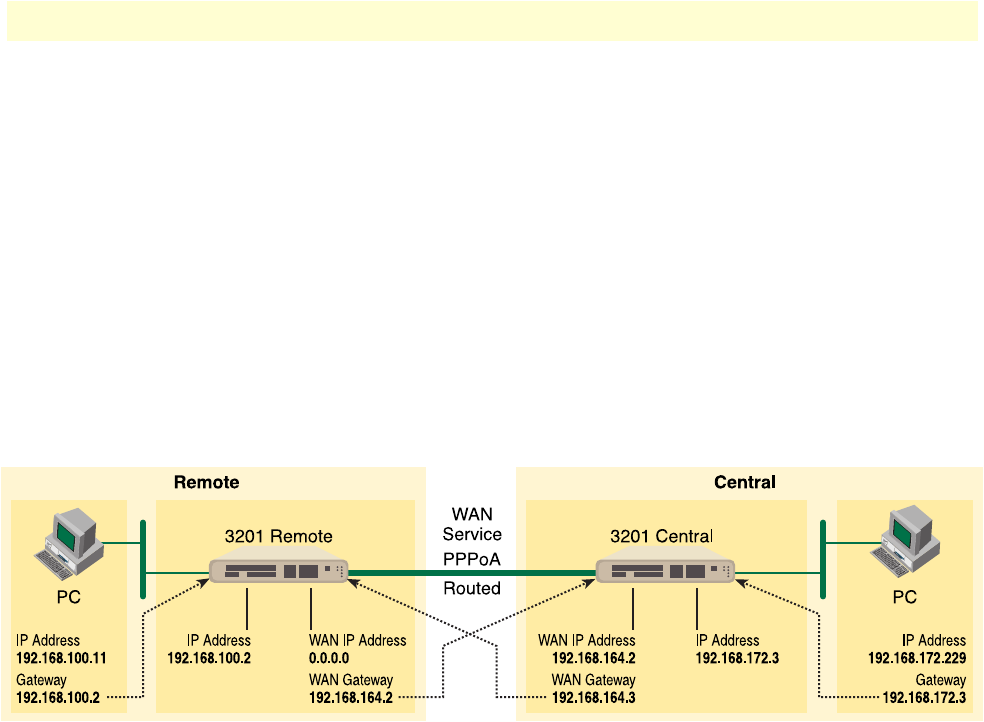
4 • Basic Application Configurations Model 3201 G.SHDSL Integrated Access Device User Guide
60 DSLAM Connections with remote CPE units
PPPoA Routed (RFC 2364)
This routed application is very similar to the PPPoA Bridged application. The user data for transmission is in
the form of IP packets but encapsulated in a PPP packet, transmitted and received through a PPP session to the
connection. The PPP packets are encapsulated according to RFC 2364 for transmission over the ATM link.
The packets are de-encapsulated on the receive side so that the IP data can be delivered to the end user.
The Central (Model 3201) end functions as a local ISP which will authenticate the Remote user (Model
3201). The CPE side, with Remote and 3201-A, may represent a home PC which is connecting to a central-
ized PPP server (Local and 3201—B).
Since this is a routed application, there are differences to be noted. Referring to the application diagram, three
unique subnets exist. The Ethernet LAN on the 3201 and Remote side, the Ethernet LAN on the 3201 and
Central side, and lastly, the subnet of the ATM’s PVC link between the two modems, 3201-A and 3201-B.
The 3201-B and Local end (the Central side) may also be a DSLAM.
Model 3201 (Remote—Client) Configuration Steps (PPPoA Routed)
1. From the command line interface (CLI) via the RS-232 control port,
→
ip list interfaces
One IP interface was called ip1 with an IP address of 192.168.1.1 Change it to an IP address which is in
the same subnet as the Desktop PC. For example, to 192.168.100.2. The default IP mask is
255.255.255.0.
→
ip set interface ip1 ipaddress 192.168.100.2 255.255.255.0



